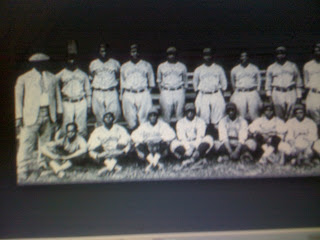BLACK SOCIAL HISTORY Leroy Robert "Satchel" Paige was born circa July 7, 1906, in Mobile, Alabama, and honed his pitching talents in reform school. Denied entry to the Major Leagues, he began his professional baseball career in the Negro Leagues in 1926 and became its most famous showman. Paige finally broke through to the Majors as a 42-year-old rookie, and became the first Negro League player in the Hall of Fame.
QUOTES
"Work like you don't need the money. Love like you've never been hurt. Dance like nobody's watching."
– Satchel Paige
Early Life
Satchel Paige was born Leroy Robert Page circa July 7, 1906, in Mobile, Alabama. He was the seventh of 12 children born to father John, a gardener, and mother Lula, a washerwoman. It was Lula who added the "i" to their surname not long before Paige was to start his illustrious career; he maintained that she changed it to sound "high-tone."
According to Paige, his mother sent him to earn money carrying luggage for businessmen at the train station, but he was frustrated with the pittance it paid. So, he rigged a pole to carry several bags at once to make the job pay better, and his co-workers purportedly told him, "You look like a walking satchel tree"; hence his unique nickname.
A run-in with the law, through petty theft and truancy, got Paige "enrolled" in reform school at age 12. But his stay at the Industrial School for Negro Children in Mount Meigs, Alabama, may have been a blessing in disguise. His baseball talent, coupled with big hands and feet on his long, lanky frame—he would grow to 6'4"—were recognized by coach Edward Byrd as assets that could be developed.
Byrd taught Paige to pull back, then kick his foot high in the air and as he came down, bring his arm from way behind and thrust his hand forward as he released the ball, giving it maximum power as it hurtled forward. Paige later said, "You might say I traded five years of freedom to learn how to pitch."
Professional Baseball Career
With African-American players barred from the Major Leagues, Paige began his professional career in 1926 in the Negro Southern League. His record with the Chattanooga Black Barons did not go unnoticed and he moved quickly through the ranks of the Negro National League teams, becoming a popular draw among audiences.
Paige played for teams all over the country, from California to Maryland to North Dakota and even outside its borders, in Cuba, the Dominican Republic, Puerto Rico and Mexico. Between contracts, Paige built quite a following through barnstorming tours, which consisted of exhibition games against other professionals and regional talent that provided extra money. In one such game, he was hired to front a team called the "Satchel Paige All-Stars" and ended up pitching to New York Yankees great Joe DiMaggio, who called him "the best and fastest pitcher I've ever faced."
Paige also once opposed St. Louis Cardinals ace Dizzy Dean in a series of six exhibition games and won four of them. Afterward, Dean noted, "If Satch and I were pitching on the same team, we'd clinch the pennant by the fourth of July and go fishing until World Series time."
One downside to all this travel and team-jumping was a lack of statistics, since even in official Negro League games, there could be a dearth of statisticians or record keepers.











































































































































































































































































No comments:
Post a Comment